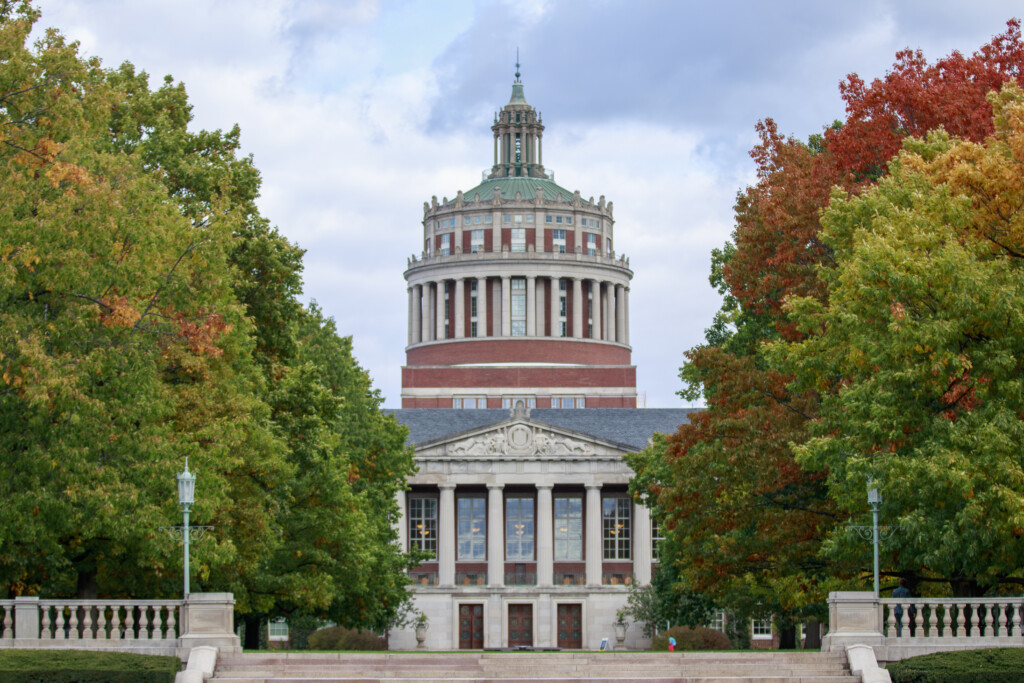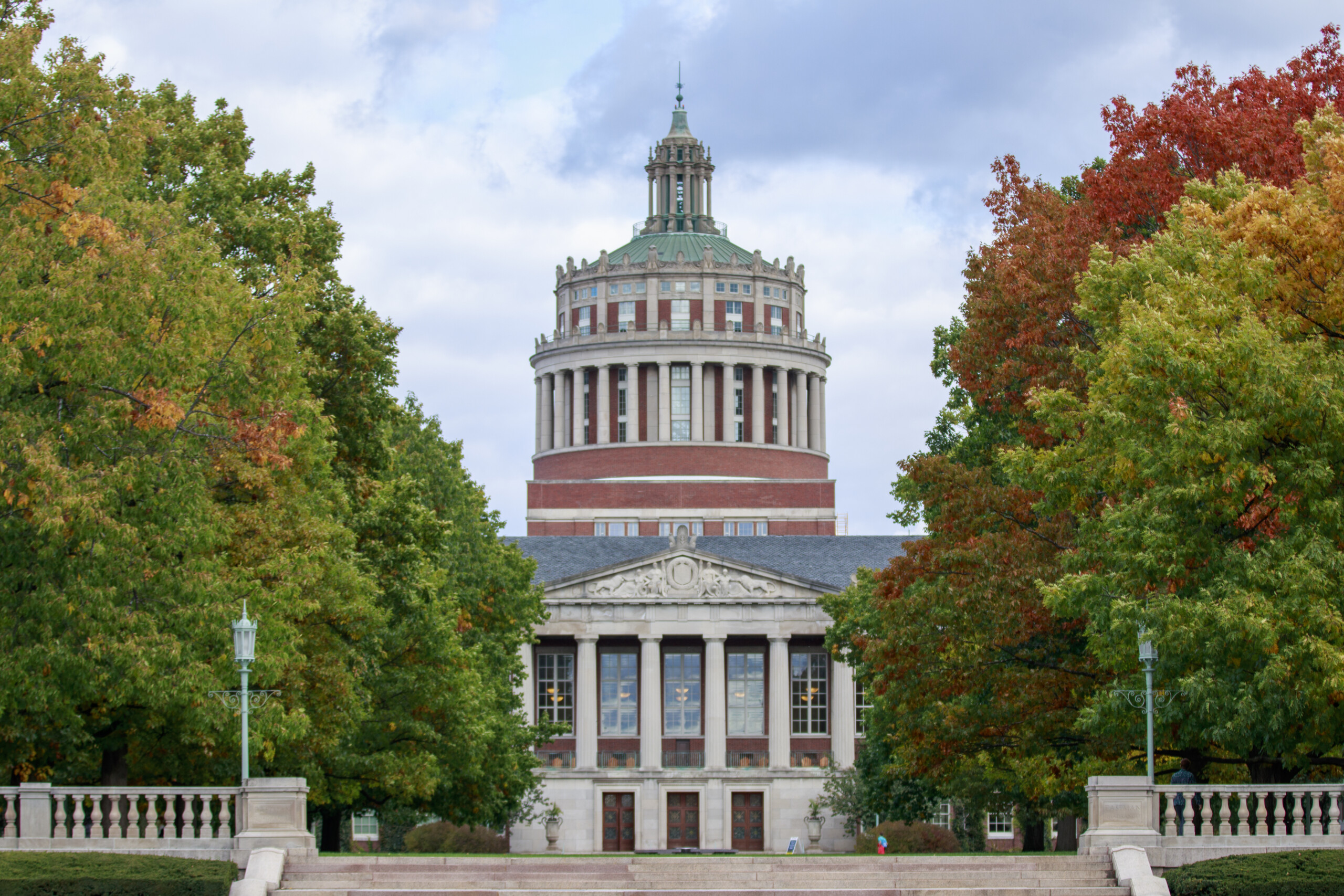US News & World Report currently ranks UR as the 47th best national university, down from last year’s ranking of 36th.
According to historical ranking data, the University’s 11-spot decline is the fifth largest drop among top-50 universities for the 2022-23 school year, with the College of William and Mary, Brandeis University, Wake Forest University, and Tulane dropping 12, 16, 18, and 29 spots respectively.
The vast majority of universities that surpassed UR in the U.S. News & World Report rankings are large public universities, including the University of Wisconsin-Madison, the University of Texas at Austin, and Rutgers University-New Brunswick. Public schools received a big rankings bump in general, as the ones that ranked in the top 75 last year rose 5.6 spots on average, while their private counterparts dropped 7 spots on average.
According to U.S. News & World Report, this year’s ranking methodology “increased the emphasis on how often schools’ students from all socioeconomic backgrounds earned degrees.” Several factors will no longer be considered, including class size, which previously accounted for 8% of a school’s total score.
The new methodology also added factors such as first-generation graduation rates, first-generation graduation performance, and the proportion of graduates that earn more than a typical high school graduate, which altogether now account for 10% of a school’s score.
The rankings themselves, however, do not explicitly account for costs of tuition. Instead, the rankings account for diversity and debt — which are influenced by, but not truly representative, of cost.
According to Vice Provost and Dean of Enrollment Management Dr. Robert Alexander, UR’s ranking drop was due primarily to U.S. News and World Report’s method of measuring postgraduate student income and the socioeconomic diversity of the current student body — but the lack of consideration for class size also factored in.
“Rochester’s socioeconomic distribution is noteworthy when comparing us to other highly selective research-intensive private universities – amongst which we have the highest fractions of students from low and middle-income families amongst our peer group,” Alexander said. “We do not, however, have as large a fraction of our undergraduates coming from lower-income backgrounds than public universities, a core element of their institutional missions, and this was the most important driver of our decline in the relative rankings.”
Despite the success of large public schools in this year’s report, private schools still dominate the very top of the rankings. The University of California-Los Angeles and the University of California-Berkeley are the only public schools to crack the top 20. .
This year, the top five schools in the rankings are Princeton University, Massachusetts Institute of Technology, Harvard University, Stanford University, and Yale University.
Alexander said he’s not concerned about UR’s ability to recruit top students despite the drop in the rankings.
“While we know some families look to rankings as an external indicator of institutional quality, our admissions counselors provide prospective students and parents the tools to choose the college that is the best fit for them, not simply the one ranked highest on any particular list,” he said.
Admissions policies are determined exclusively by the university. Policies are guided by what is best for the students rather than external rankings, according to Alexander.
“Publications create rankings to drive clicks and sell ads, and consequently periodically manipulate methodologies in ways that reshuffle the rankings to attract new attention. We focus on enrolling fantastic students who are the right fit for Rochester,” Alexander said.
Senior Kevin Gery, a prospective Ph.D. student majoring in Biomedical Engineering and Biochemistry, says he’s not necessarily worried about UR’s ranking affecting his chances of getting into graduate programs, but he does feel like university rankings factor somewhat significantly into graduate admissions.“I know that [the rankings] exist and I know people are aware of them, so, where we lay is still relevant in terms of what it means to have a degree from here,” Gery said.
Catherine Zhang, now a first-year at the University, says she looked at rankings like the U.S. News & World Report when deciding what college to attend, but that rankings were ultimately not a deciding factor.
“I was mostly focused on research opportunities and resources available, the class sizes, and the location of the school,” she said. “When deciding on a college to attend in the fall, [the University] was a great option for me because I knew about the amazing research conducted here and I really liked the size of the average graduating class.”


